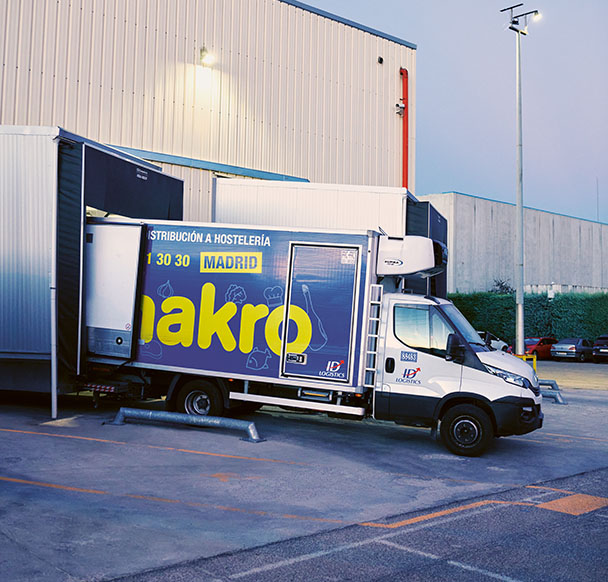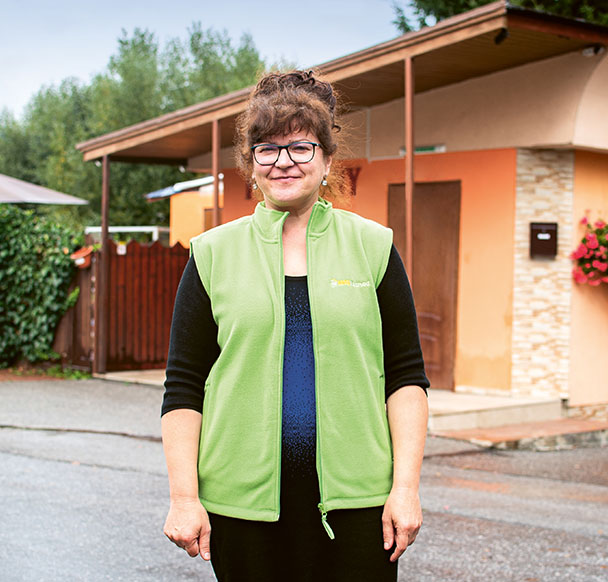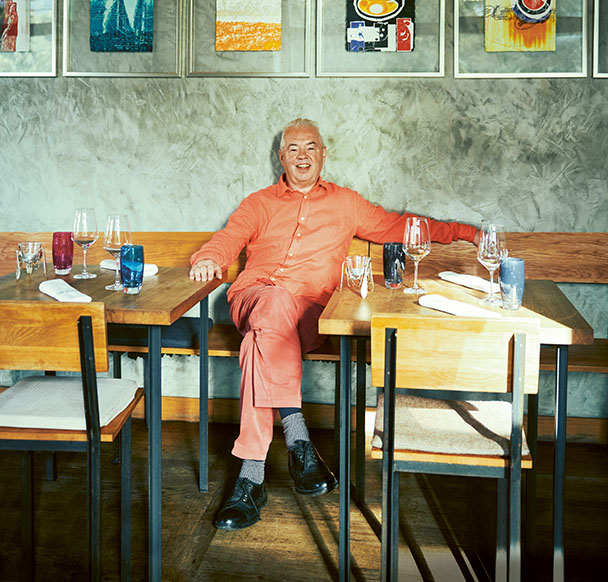Goals and strategy
METRO
- Clear focus: METRO sees itself as a strong partner for professional customers, especially in the HoReCa and Traders segments.
- Long-term strategic value drivers: METRO relies on a sustainable, synergistic multichannel strategy with clear added customer value. The combination of wholesale stores, delivery business and digitalisation is a core element of this strategy.
- Implementation in financial year 2020/21: METRO invested in the expansion of multichannel elements and the intensification of customer relationships to emerge stronger from the pandemic. The business developed better in its core countries than the respective HoReCa sector as a whole.
Clear focus
METRO is a leading international food wholesaler, operating in over 30 countries worldwide under the brands METRO, MAKRO, Aviludo, Classic Fine Foods, Davigel Spain, Pro à Pro and Rungis Express. METRO sees itself in the role as a strong partner of choice for professional customers. It pursues an attractive multichannel strategy, selling products and services through 748 wholesale stores and supply depots as well as the online marketplace METRO MARKETS.
METRO’s strategy is aimed at long-term, consistent growth of sales and earnings. The wholesale business targets growing markets and attractive industry sectors that are characterised by very strong customer relationships, a high number of recurring customers, large shopping baskets and high productivity. In the long term, the industry benefits from the rising tendency to out-of-home consumtion as well as the ongoing trend towards convenience solutions.
Strategic value drivers
- Alignment towards professional customers: the 2 core customer groups of METRO are HoReCa and Traders. The HoReCa section includes hotels, restaurants, bars and cafés as well as catering companies. The Traders section includes small grocery stores and kiosks. Together, HoReCa and Traders generate around 66% of sales and drive growth. By focusing on the core needs of our customers, we confirm our value proposition. METRO strives for high customer retention and maximum exploitation of customer potential.
- Multichannel strategy: the combination of wholesale stores and a rapidly growing delivery business supports the increase in sales with our core customer groups, as the 2 channels serve different customer needs and form a synergistic connection. To this end, METRO is investing in the increased customer focus of the wholesale stores as well as in the expansion and continuous improvement of the delivery business.
- Digitalisation: the digitalisation of the customer experience represents another lever for customer retention. The M-Shop ordering platform digitalises the customer ordering process. The platform is already active in 20 countries and is used by more than 40,000 customers every week. In addition, the METRO Companion app digitalises crucial customer contact points. The app enables access to the various sales channels via smartphone. Among other things, it replaces the METRO customer card when shopping at the wholesale store and offers delivery customers access to the order assortment. Currently, more than 400,000 customers use the METRO Companion app every month. Additional customer needs are addressed with the online marketplace METRO MARKETS, which is especially geared towards professional equipment for HoReCa customers. METRO MARKETS is available in Germany and Spain; additional countries are planned. METRO also supports customers in the digitalisation of their businesses, for example through DISH, an online platform for digital applications in the hospitality industry.
- Customer retention through Traders Franchising Model: moreover, METRO increases customer loyalty through further measures and solutions adapted to local market conditions, such as the Traders Franchising Model. METRO operates in a similar way as a franchisor with its own brand identity. It provides products and offers additional services to the participating independent grocery stores, such as training courses and assortment consultancy. The strong customer retention of the Traders franchisees is reflected in average sales that are more than 10 times higher compared to other Traders customers. In financial year 2020/21, METRO had over 8,000 customers in the Traders Franchising Model and generated more than €500 million in sales with them in Poland, Romania, Russia, Bulgaria, Croatia, Serbia, Pakistan, the Czech Republic and Slovakia.
- Corporate sustainability: METRO’s main objectives are the promotion of environmentally and socially responsible procurement, the expansion of a responsible and innovative product range and the development of solutions to reduce food waste. In 2021, we tightened our existing climate target: By 2040, we want to make our global business operations carbon neutral, mainly through our own initiatives. Sustainability is an established part of METRO’s business model as well as an indispensable part of the future strategy with focus on business ethics, resource availability, talent acquisition and retention as well as customer demand and regulation.
Implementation in financial year 2020/21
After the successful disposal of the retail business last year, the focus was on strengthening the operational wholesale business. METRO invested in the expansion of multichannel elements and intensification of customer relationships, allowing it to emerge stronger from the pandemic.
- Covid-19: the regulatory restrictions related to the Covid-19 pandemic significantly restricted the hospitality industry and posed challenges for our customers. METRO has continued to operate the business without major restrictions and has supported customers in dealing with the situation. The volatility of the restrictions brought the benefits of the multichannel offer into focus for our customers, as they increasingly took advantage of the enormous flexibility offered by the wholesale stores (for example no order lead time, no minimum order quantities). METRO thus outperformed the respective HoReCa markets in the lockdown phases and during the subsequent recovery in Germany and in some other Western European countries with strong HoReCa performance. The Traders customer group, which benefits from the continuing trend towards convenience solutions, was less affected by the pandemic-related restrictions in its business operations compared to the hospitality industry.
- Investments in the multichannel business and digitalisation: despite the temporary decrease in the hospitality and tourism industry, METRO continued to invest in the expansion of its multichannel business (for example by opening new depots), in digitalisation (for example by introducing DISH Order, a software that allows end customers to order from restaurants) and in the expansion of its distribution structures.
- Acquisitions strengthen delivery business, disposals tighten the profile: the country portfolio of METRO is regularly reviewed with regard to the feasibility of a local market leadership and the attractiveness of the respective markets. Accordingly, the decision was made in financial year 2020/21 to exit the countries Japan and Myanmar. By contrast, METRO strengthened its competence and positioning in the hospitality wholesale business in Western Europe through the acquisitions of AGM in Austria (under competition law review), Aviludo in Portugal and Davigel in Spain as well as the investments in Filpromer in France.
- For more information about sustainability at METRO, see chapter 2.3 Combined non-financial statement of METRO AG in the combined management report.




